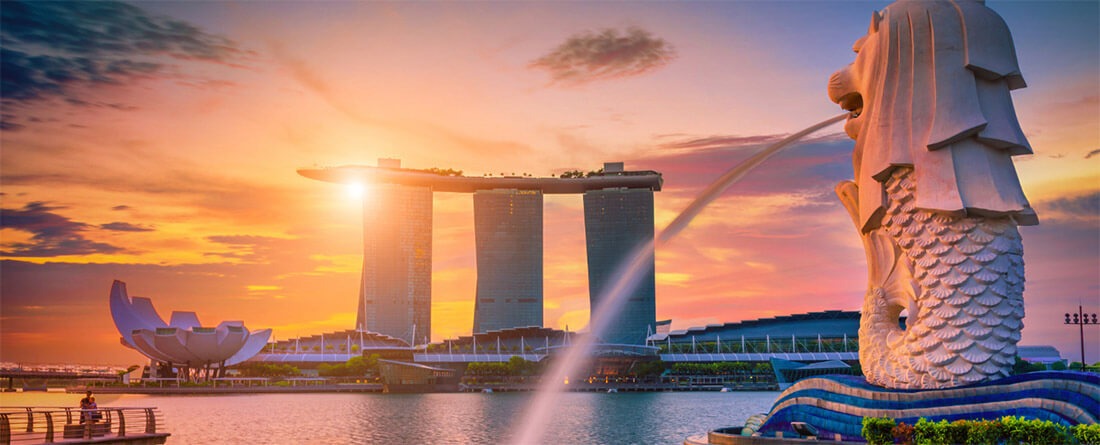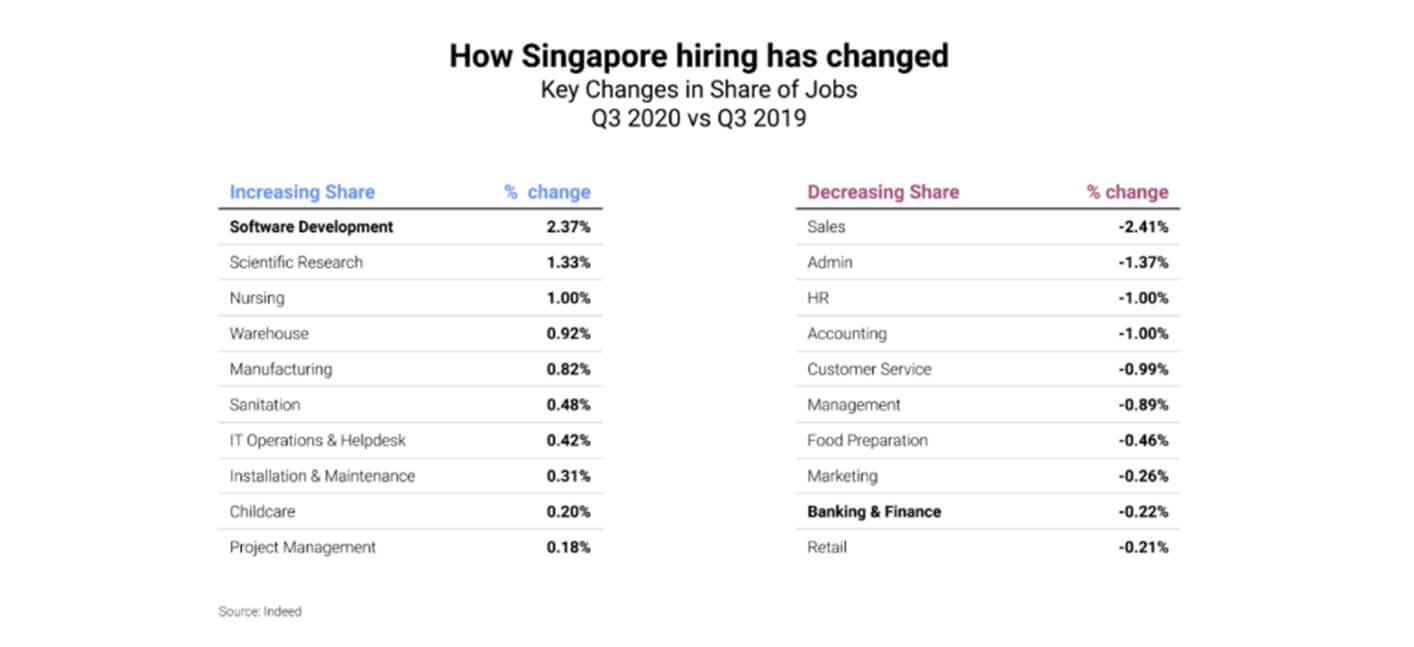newest article

What’s in store for Singapore’s Post COVID-19?
04 December 2023 6:03 pm // Written by Muhammad Nuzaihan Bin Hamdan;
The COVID-19 pandemic has indeed impacted our lives – the way we conduct our daily affairs – work, play and interact at socio-economic and international levels and caring the environment.
To survive the pandemic, sense of hygiene is paramount which include the compulsory usage of face masks, sanitizing our hands and ensuring our environment is clean. The need for social distancing requires people to work from home and avoid crowding, including big weddings.
World-wide, the pandemic has forced nations to accelerate the adoption of internet of things (“IOT”) which include e-commerce, videoconferencing such as Zoom, telemedicine or online teaching. These are blended into our lives as the “New Normal”.
How a small nation like Singapore can confidently enter the post-COVID-19 phase?
National Initiatives
We have to embark on a new set of plans at different levels – from national to individuals.
The Government has made some critical intervention and adjustments. For this reason, Singapore has been lauded as among the few nations who have managed to control the pandemic through contact tracing mechanisms, dedicated and well-trained health workers and of course, abiding citizens.
The level of optimism shown by foreign investors in Singapore is reflected by the success of the Economic Development Board in securing SGD13 billion worth of fixed asset investment. Though relatively slow, industries such as transportation and tourism are slowly picking up, creating job opportunities at the same time.
Securing Jobs
Most economic sectors are affected by the pandemic. Many workers, especially in the retail (such as the closure of the iconic Robinsons), aviation and tourism sectors were considered redundant. Singapore’s jobless rate soared to a new high in 2020, at circa 4 per cent.
Naturally, employers look at cost optimization. Thankfully, many Singapore workers are pragmatic – willing to have their salaries reduced or risked being laid off.
Fortunately, Singapore’s spirit of tripartism has again helped in building the bridge of understanding and cooperation between the unions, the Government and the employers. With job fares spurred by impressive campaigns, many redundant workers found new opportunities to take up training and switch to new line of occupations. When this essay was written, there were as many as 84,400 positions waiting to be filled. It is the attitude of the workers that matters at this critical juncture – to have an open mind and be flexible to brave new challenges.

In the meantime, the pandemic has motivated more individuals to start their own businesses at homes in order to supplement their family’s income or to aid their redundant family members. Initially, there were some reservations as to the safety or the hygienic status of home-cooked food. But with training given to these operators and support from many quarters, including President Halimah (who recalled her experienced helping her mother to make and sell kuih from her home), the issue was aptly handled. This emerging sector has also propelled the need for delivery services.

Fig 1: How Singapore hiring has changed
Source: ChannelNewsAsia
What to expect in the next few years?
The pandemic has spurred Singapore to be more driven and sustainable as far as Food Security is concerned. Almost all our food are imported. The plan is to provide up to 30 per cent of the nation’s food needs has found keen support from many local entrepreneurs and attracting foreign participation. Not only we grow food on our limited land but also on our roofs and even stacked containers. Singaporeans are encouraged to do hydroponics or aeroponics – growing their own vegetables at the corners of their flats.
To revive local tourism, the Government has initiated SingaporeDiscovers Vouchers amounting to SGD320million. This is meant to encourage the community to spend locally amid travel restrictions whilst at the same time improve the local economy.
When more and more people globally are vaccinated against COVID-19, the wheels of progress would rotate once again. Hence, industries like aviation are predicted to grow as more travel bubbles are established.

Since the growth may be gradual;, it is advisable that we plan ahead and move on with our lives within our means. This includes evaluating ones circumstance and consider the needs of our families. Many Muslim families here are found to be heavily in debt, according to the Debt Advisory Centre of the Association of Muslim Professionals (AMP). Rasulullah (PBUH) has reminded us:
“Save up some of your wealth for your future, as that will be good for you.” [Hadith of Al-Bukhari]
The Monetary Authority of Singapore (“MAS”) has always urged Singaporeans to be prudent when taking up debt or buying property.
Islam has taught us that to live modestly and thus be able to fulfil or pay Zakat (both fitrah and wealth), the third tenet of the Five Pillars of Islam. Our awareness of Zakat, including the knowledge on how to calculate it, would help us in our financial commitments.
Good and Bad Times
In Surah Yusuf, one is reminded of the good and bad times such as faced by Prophet Yusuf A.S. The holy Quran says that every person will be tested with hardship as to ascertain his or her faith or iman. But the Quran (Surah Al-Insyirah) also says that for every hardship, there is ease. Hence, Muslims must learn to be confident of his future, for example by carrying out the following:
- Learning New Skills: IOT is a tool of knowledge. For example, during the pandemic, an Ustaz is required to conduct his class via videoconferencing or lose his income. Even after the pandemic, both physical class and videoconferencing can be done simultaneously to benefit students who are sick at home.
- Proactive: Islam encourages us to think ahead and to anticipate problems that nothing is permanent including one’s job. Hence, do not depend on your employers to train you. Always on the lookout for opportunities for self-advancement.
- Togetherness: During your spare time, do volunteer (or) pro-bono service to help those in need as to gain Allah’s blessings or barakah. In this trying time, helping one another or community sharing is fundamental to uphold social justice. “Help ye one another in righteousness and piety but help ye not one another in sin and rancor: fear God: for God is strict in punishment” (QS Al-Maidah:2)
During hard times, even competing firms need to help from one another as shown by the recent ads by Burger King (source he Guardian).
Alhamdulillah, the pandemic has motivated many Singaporeans to be more charitable as shown by the increase in donations last year. Allah SWT reminds us:
“Who is he that will lend unto Allah a goodly loan, that He may double it for him and his may be a rich reward?” (QS Al-Hadid: 11)
Charity begins at home – your family, among kins and may be extended to all humanity. The pandemic has made it more urgent that Singapore Muslims to plan well and to have a strong will to create collective investment growth engines. PERGAS has formed its investment platform called PERLU. Whilst MUIS launched theDana Wakaf Masyarakat. These initiatives are meant to fulfil the financial needs of the ummah to grow and to alleviate difficulties. We shall succeed, insya-Allah.
References
- Mediacorp (2020). Households urged by MAS to stay prudent when taking up debt or buying property. Retrieved from https://www.channelnewsasia.com/news/singapore/households-mas-stay-prudent-debt-property-covid-19-13674476 (02 December 2020).
- Mediacorp (2020). Singapore among world’s most competitive, pro-business economies, public sector report shows. Retrieved from https://www.channelnewsasia.com/news/singapore/singapore-economy-competitive-pro-business-investment-spor-13643492 (30 November 2020).
- Mediacorp (2020). As COVID-19 speeds up automation, what does the future hold for non-tech job seekers? Retrieved from https://www.channelnewsasia.com/news/singapore/tech-jobs-digital-data-analytics-coding-job-seekers-13339222 (30 November 2020).
- Mediacorp (2020). IN FOCUS: After COVID-19, where are the Singapore economy, workforce headed? Retrieved from https://www.channelnewsasia.com/news/business/covid-19-jobs-unemployment-career-switch-challenges-13143634?cid=h3_referral_inarticlelinks_24082018_cna (30 November 2020).
- Mediacorp (2020). COVID-19: Switching careers a challenge for some job seekers despite opportunities. Retrieved from https://www.channelnewsasia.com/news/singapore/singapore-economy-competitive-pro-business-investment-spor-13643492 (30 November 2020).
- The Guardian (2020). End the beef: why Burger King wants people to eat at McDonald’s. Retrieved from https://www.theguardian.com/business/2020/nov/03/end-the-beef-why-burger-king-wants-people-to-eat-at-mcdonalds (02 December 2020).
- The Holy Qur’an Translation by A. Yusuf Ali ((2020). Sura 5: Maida, or he Table Spread. Retrieved from https://quranyusufali.com/5/ (02 December 2020).
- The Straits Times (2020). $100 tourism vouchers: How do I redeem them and can they be used all at once? 7 things you need to know. Retrieved from https://www.straitstimes.com/singapore/5-things-you-need-to-know-about-the-singaporediscovers-vouchers (02 December 2020).
- The Straits Times (2020). Mismatch in expectations leave many vacancies unfilled, say observers. Retrieved from https://www.straitstimes.com/singapore/jobs/mismatch-in-expectations-leave-many-vacancies-unfilled-say-observers (30 November 2020).
- The Straits Times (2020). No year-end bonus for 85,000 civil servants. Retrieved from https://www.straitstimes.com/singapore/jobs/no-year-end-bonus-for-85000-civil-servants(30 November 2020).
- The Straits Times (2020). Malay-Muslims here responded well to Covid-19 challenges, says Masagos. Retrieved from https://www.straitstimes.com/singapore/malay-muslims-here-responded-well-to-covid-19-challenges-says-masagos (30 November 2020).
- The Straits Times (2020 Muslim organisations, mosques to get $4.9m from wakaf income. Retrieved from https://www.straitstimes.com/singapore/muslim-organisations-mosques-to-get-49m-from-wakaf-income (30 November 2020).










